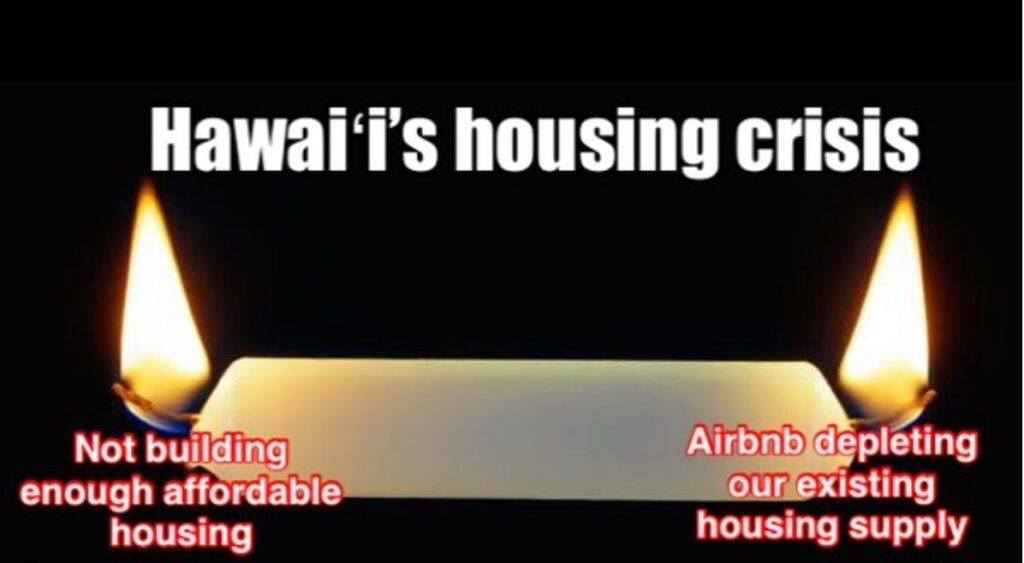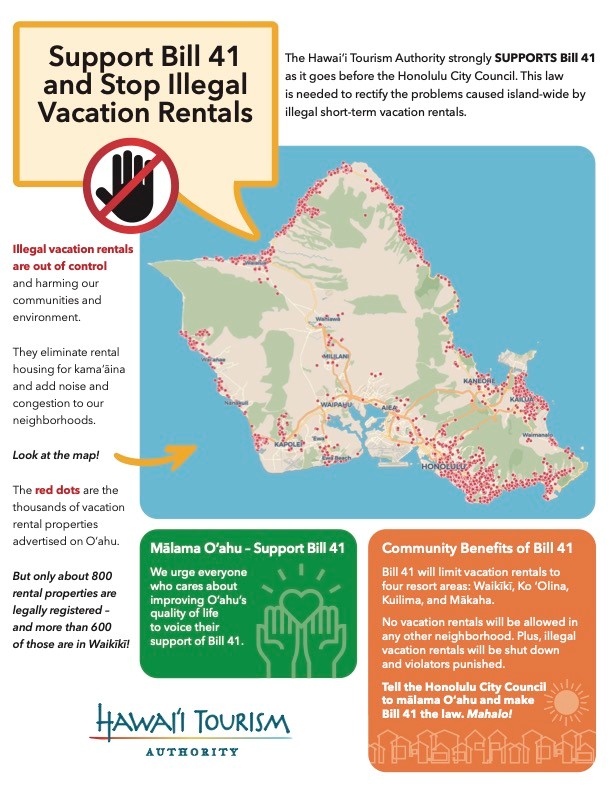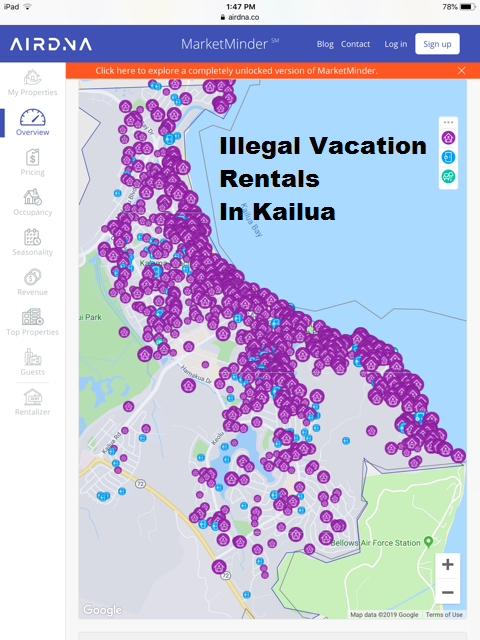At a recent Oahu Vacation Rental group meeting, illegal vacation rental owners and Realtors were distraught and angered when their attorney told them the bad news that their sham 30-day vacation rental model was illegal if they charged a daily rate or restricted their guest’s occupancy for less than 30 days. Many of the illegal vacation rental owners want to ignorantly believe that they are allowed to offer one short-term rental (less than 30 days) once a month, but the attorney said that’s not allowed and illegal vacation rentals would be violating the law if they did.
The attorney also disappointed the group when he told them their belief that the Honolulu Short-term Rental zoning law violates their constitutional property rights was bogus and has no legal merit. The attorney cited a 1926 US Supreme Court ruling (Euclid v. Ambler) that affirmed there was valid government interest in maintaining the character of a neighborhood and in regulating where certain land uses should occur, including short-term rental businesses.
Keep it Kailua has received numerous inquiries regarding the recent news that the DPP and the Kokua Coalition (dba Hawaii Vacation Rental Owners Association) signed a settlement agreement and what it means in regards to the recently adopted Short-term rental ordinances 19-18 and the so-called 30-day rental sham.
We asked our legal team to analyze the agreement and give their opinions.
Our legal team unanimously believes the Hawaii Vacation Rental Owners Association made a gigantic mistake in filing their lawsuit and their subsequent negotiations with the City. The court-approved agreement had no significant impact on the ordinances, but it did substantially strengthen the law and will help the DPP issue more violations and fines.
The new agreement (sanctioned by the Federal Court) declares unpermitted short-term rentals cannot offer a rental whose price is based on a less than 30-day occupancy. In other words, they must offer the property based upon a minimum “30-day” rental and any offer that is based upon less than 30 day occupancy is illegal.
The agreement stated “solicitations and offers to rent property violate Ordinance 19-18 if the price paid for the rental is determined, in whole or in part, by an anticipated or agreed upon occupancy of the property for less than thirty days”.
The agreement also specifies that it is illegal for the property owner or their representatives to limit the actual occupancy to less than 30 days or conditioned the right to occupy the premises for the 30-day rental period on the payment of additional consideration.
It’s only a matter of time that every vacationer will learn that they have the legal right to stay on a property for a minimum of 30-days, regardless of what price they pay, or what they told owners would be their expected arrival and departure dates.
According to the agreement, renters are also allowed to leave a property at any time during a 30-day period, but they also have the right to reenter property during the same 30 day period and no other party, including the owners, are allowed to utilize the rental property.
This is a detail many unscrupulous Realtors and Illegal vacation rentals owners have not been disclosing to the renters. The owner and their representatives will try to trick the renters into giving them their arrival and departure dates. They then will quote the illegal vacation rental based upon the guest’s estimated length of stay, but not explain to them they are actually renting for 30 days. This trick gives the renters the impression that they are paying for a less than 30-day rental, which of course fits their travel plans and makes the lodging more attractive than staying in legal accommodations.
Only after the renters have committed to the short-term rental, do the owners or Realtors request the renters to sign a 30-day rental agreement, which they call a “formality” required by the City zoning laws. The rental agreement’s start and finish date is made after the trip is agreed upon and is at the discretion of the property owner or their representative, not the guests. One of the unethical tricks proposed at the recent Illegal vacation rental meeting was to slyly make the ending date of a fraudulent 30-day contract the same date the short-term rental guests proposed to depart. That way if the guests find out that they are entitled to stay longer on the property during their stay, it will be too late for them to do anything legally about it.
Of course, this scam and deception is illegal. It not only breaks City and County Zoning laws, but we also believe it is in violation of State of Hawaii statutes for deceiving the consumer and violates Landlord-tenant laws. We recommend complaints be direct to not only the DPP, but also the State Consumer Affairs office and the Regulated Industries Complaints Office (RICO).




